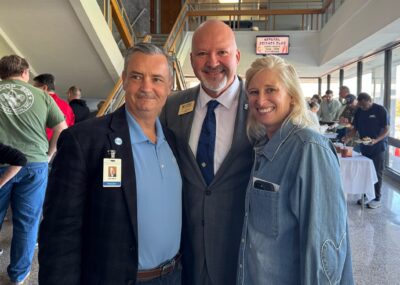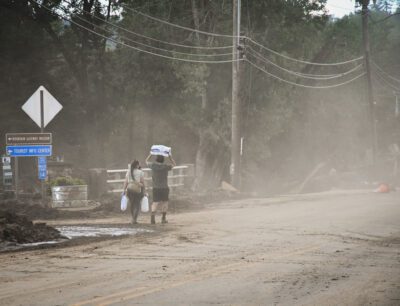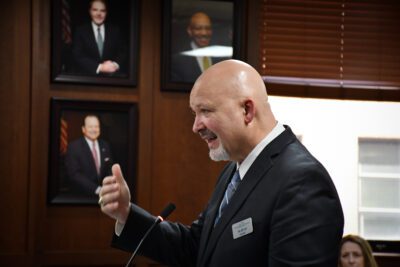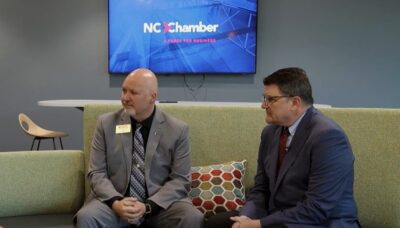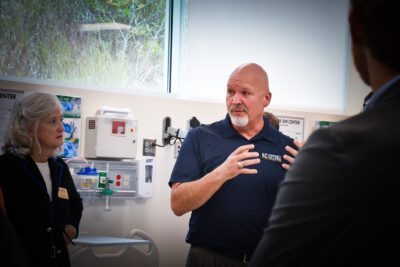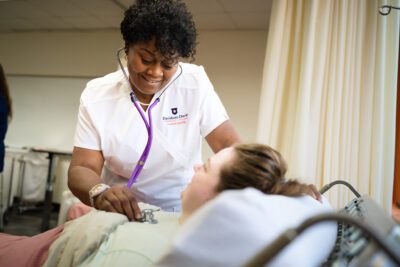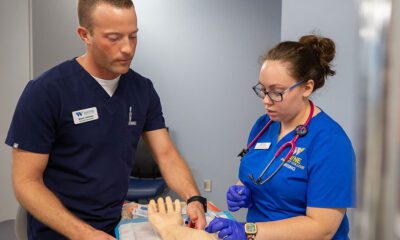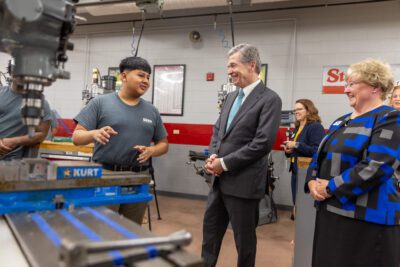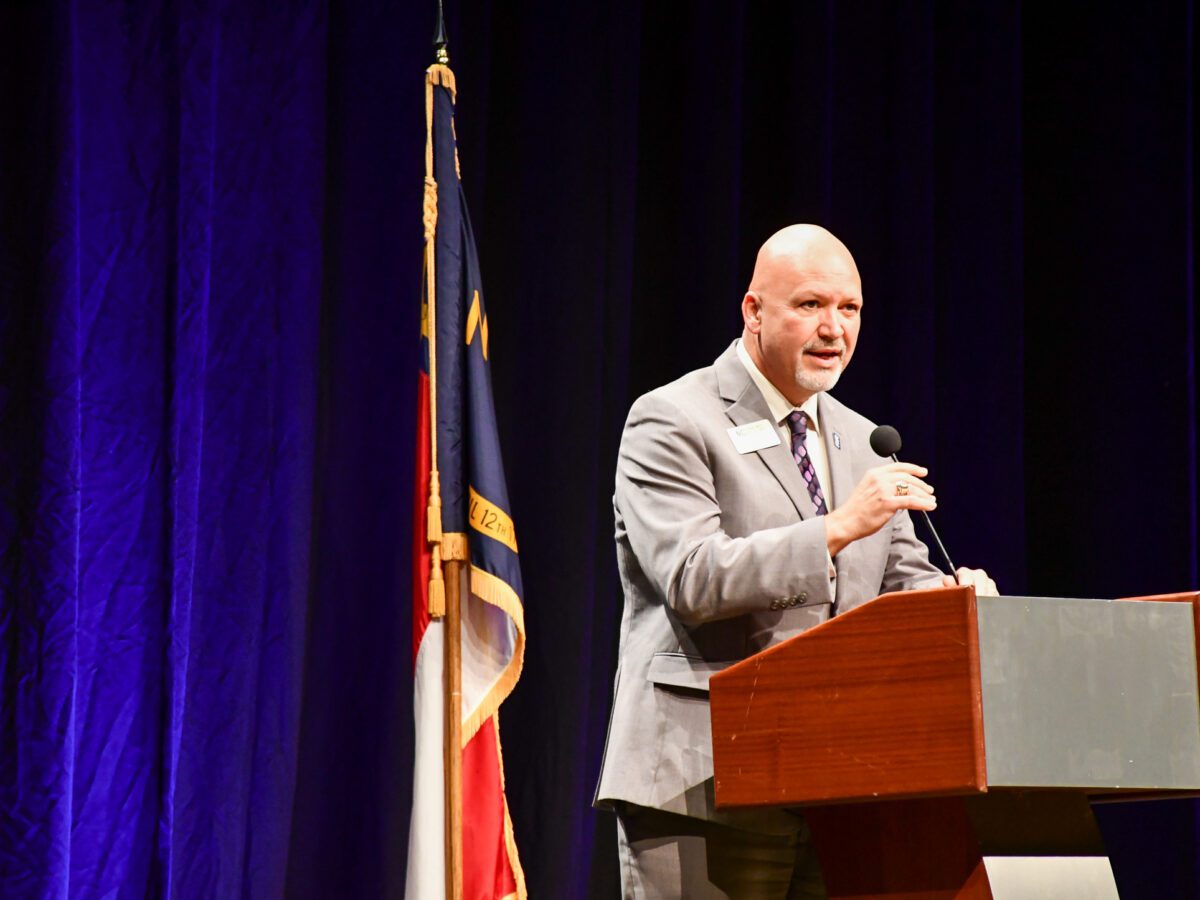
|
|
The North Carolina Community College System (NCCCS) hosted its biennial system conference Oct. 13-15 in Raleigh with a theme of “The Extraordinary 58: Paving the Way for Economic Mobility and Successful Futures.”
The three-day event featured over 170 sessions and nearly 60 roundtable discussions, highlighting innovative practices across the state. More than 1,600 people were registered this year.
Wake Technical Community College’s Color Guard kicked off the general session followed by the national anthem sung by the Wayne Community College choir.
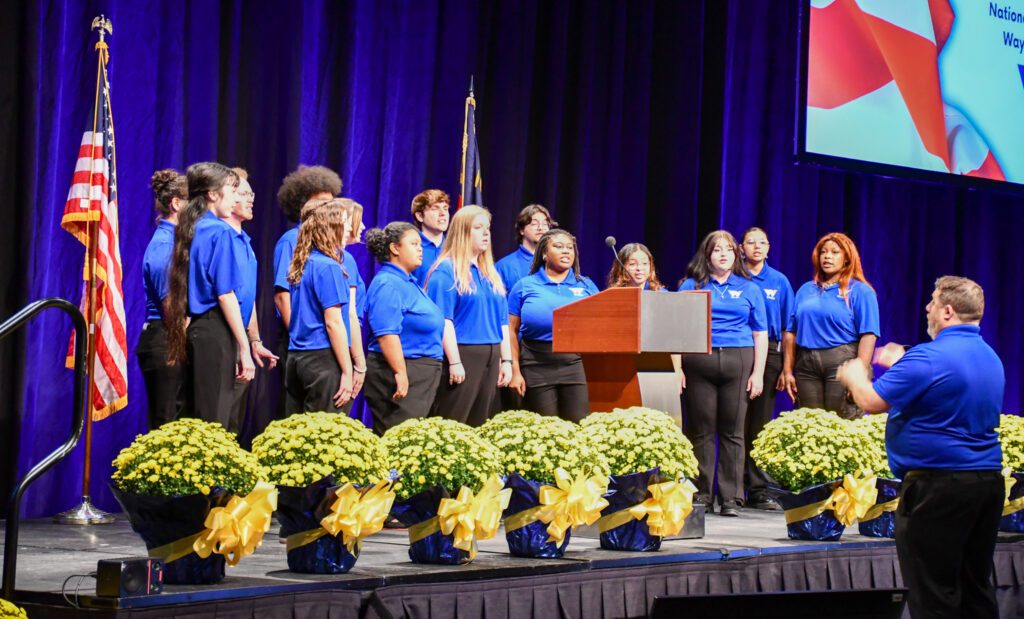
During his opening remarks, Dr. Brian Merritt, senior vice president and chief academic officer for NCCCS, recognized the colleges and communities in western North Carolina impacted by Hurricane Helene.
“The past few weeks have presented challenges that none of us, whether directly or indirectly impacted, were prepared for,” Merritt said.
Merritt went on to thank those who have donated to the Hurricane Helene Community College Response and Recovery Fund or dropped off donations for the relief efforts.
While many were unable to attend the conference due to Helene, Merritt asked any college employee from the western part of the state to please stand and be recognized.
“Thank you all for being here,” Merritt said. “We’re here for you … and this support is just the beginning to make sure that our colleges are whole.”
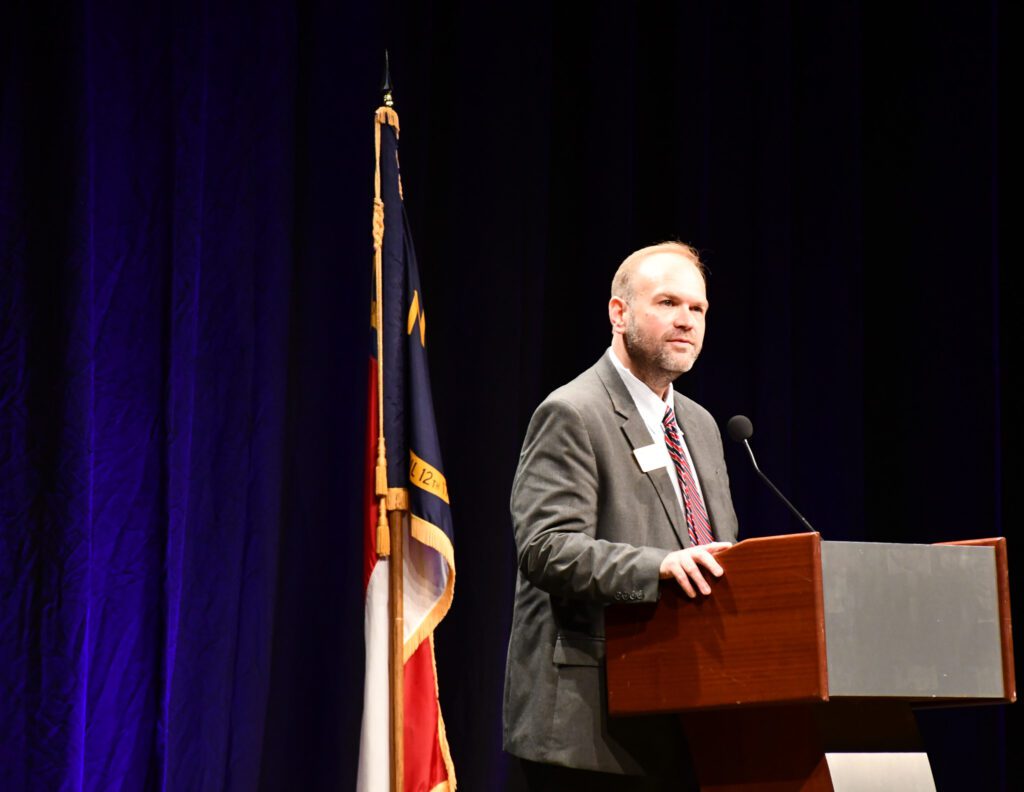
Emily Thomas/EdNC
NCCCS President Dr. Jeff Cox gave the keynote address during the opening session.
Like Merritt, Cox took a moment to recognize the community colleges and areas impacted by the storm.
He went on to highlight the various ways the colleges are living out their mission statements by being anchors of the community in the wake of Helene, noting how some were serving as regional emergency hubs, supporting local emergency services, operating as staging grounds for lineworkers, and more.
“While many of our communities have been devastated, I’ve been really inspired by the generosity and dedication of so many in our community college family across the state, and particularly inspired by these counties in the west that are playing such a critical role in the recovery effort, even as they’re reeling themselves,” Cox said. “They’re leading the effort in their communities to rebound and recover.”
Cox also discussed the system’s partnership with the John M. Belk Endowment (JMBE) to help in recovery efforts. JMBE committed $2 million to support students, faculty, staff, and communities. The funding will address immediate needs, providing assistance to the 14 community colleges located within the original federal emergency declaration zone.
Related reading
In his keynote, Cox underscored the value community colleges bring to the state.
The NCCCS is the third largest community college system in the country based on the number of colleges. The 58 colleges serve over 600,000 students, and their total economic impact for the state is $19.3 billion. This is equivalent to about 320,000 jobs that are supported across the state, according to a 2021 economic impact report.
“For every $1 of state investment in our community colleges, North Carolina added tax revenue and public sector savings of $1.90,” Cox said.
Cox discussed the system’s new vision statement and highlighted the role the system will play in supporting the 58 colleges. One primary goal, Cox said, is for the NCCCS to “deliver essential infrastructure resources and systems that enable North Carolina community colleges to increase the number of credential earners in high-demand workforce sectors.”
The first priority to accomplish that is modernizing the technology system, Cox said. The NCCCS is committed to updating and modernizing the colleges’ ERP system.
Cox also spoke about operationalizing Propel NC, the system’s proposal to change the way community colleges are funded.
Propel NC would shift the current FTE funding tiers to “workforce sectors,” with courses ranked and valued by statewide salary job demand data every three years. All curriculum and continuing education (CE) courses would reside in the same workforce sector. The NCCCS says this shift “prioritizes connecting students to high-demand, high-wage jobs.”
Cox said a new labor market tool that will be used to help finalize workforce sectors is expected to be made public later this fall.
Finally, Cox highlighted the growth across the system this year, including the following:
- This year, the system saw a 45% increase in registered apprentices and a 50% increase in new registered pre-apprentices. Through ApprenticeshipNC, companies gain a 170% return on their investment when they engage with apprentices, Cox said.
- Nearly 30,000 individuals and companies were trained this year through NCEdge, a customized training program. It is the highest number trained in the last five years, engaging over 850 companies across the state with customized training.
- Community colleges’ Small Business Centers saw a 10% increase in new businesses started. There were 4,372 jobs created or retained through partnerships with Small Business Centers, and the centers have served over 6,300 clients. Through the Small Business Center Network, the system has a role in launching, on average, 645 new businesses across the state each year.
- A large part of the state’s economy is life sciences with nearly 800 companies in North Carolina. Between 2020 and 2024, life science companies in North Carolina invested nearly $20 billion and created over 20,000 new jobs in the state.
The 58 community colleges are helping North Carolina companies find the talent they need and upskill current talent, keeping businesses productive and on pace for the change in economy, Cox said.
In closing, Cox told attendees he believed they were working in the most important institutions in the state.
“We touch more people and make a bigger impact than any other organization in this entire state,” he said.
Other conference highlights
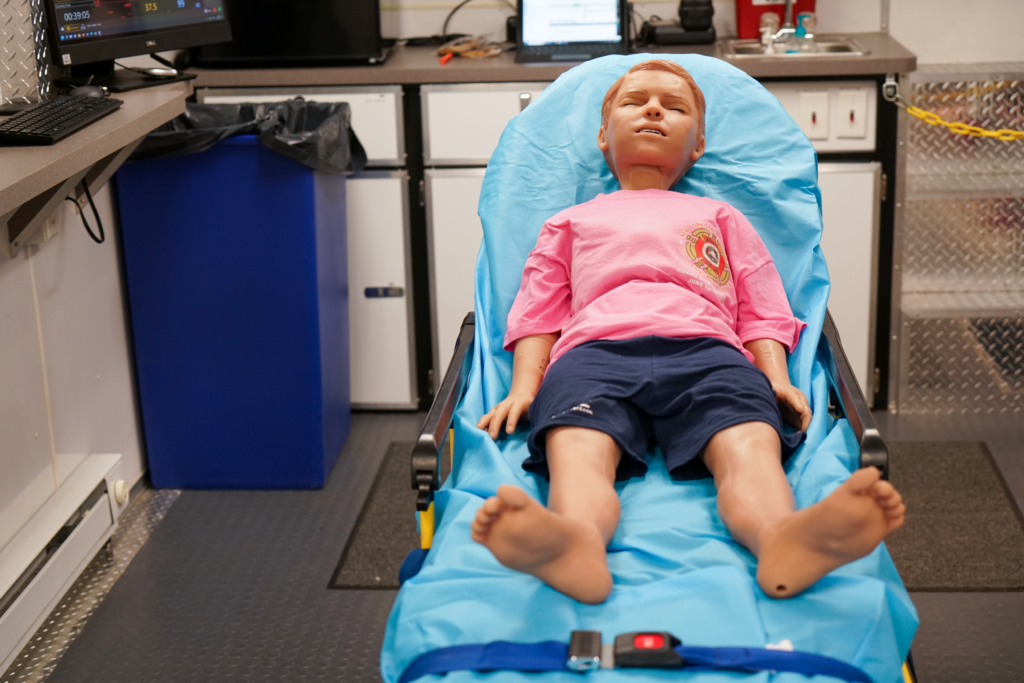

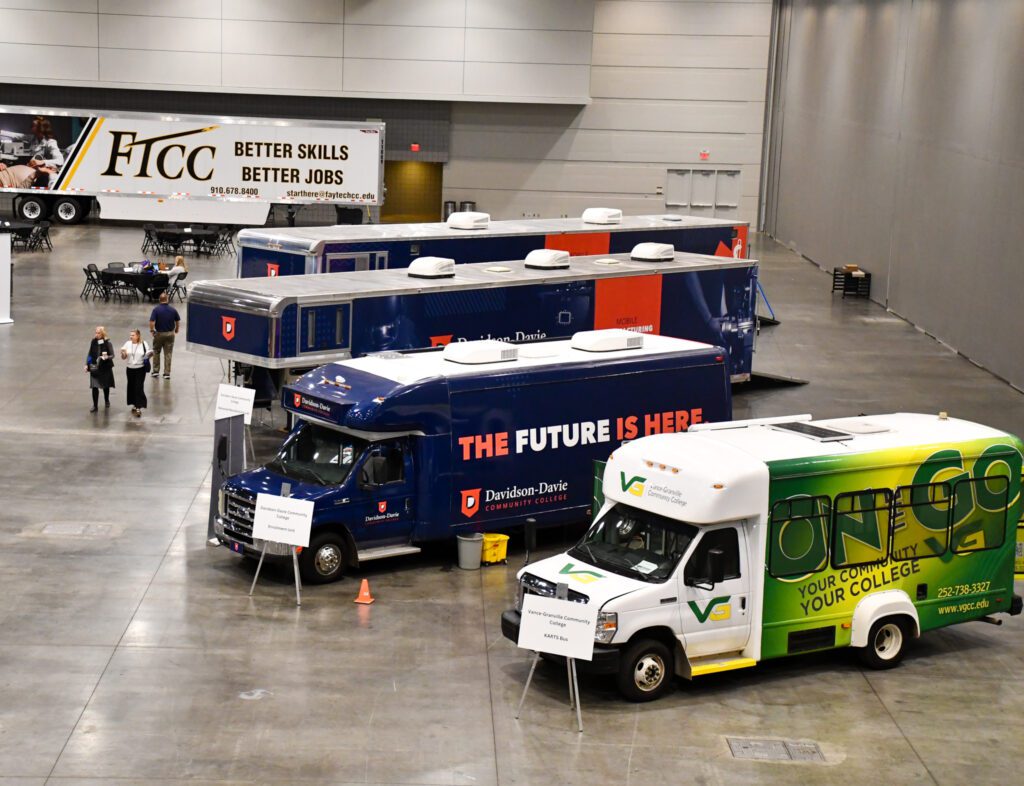
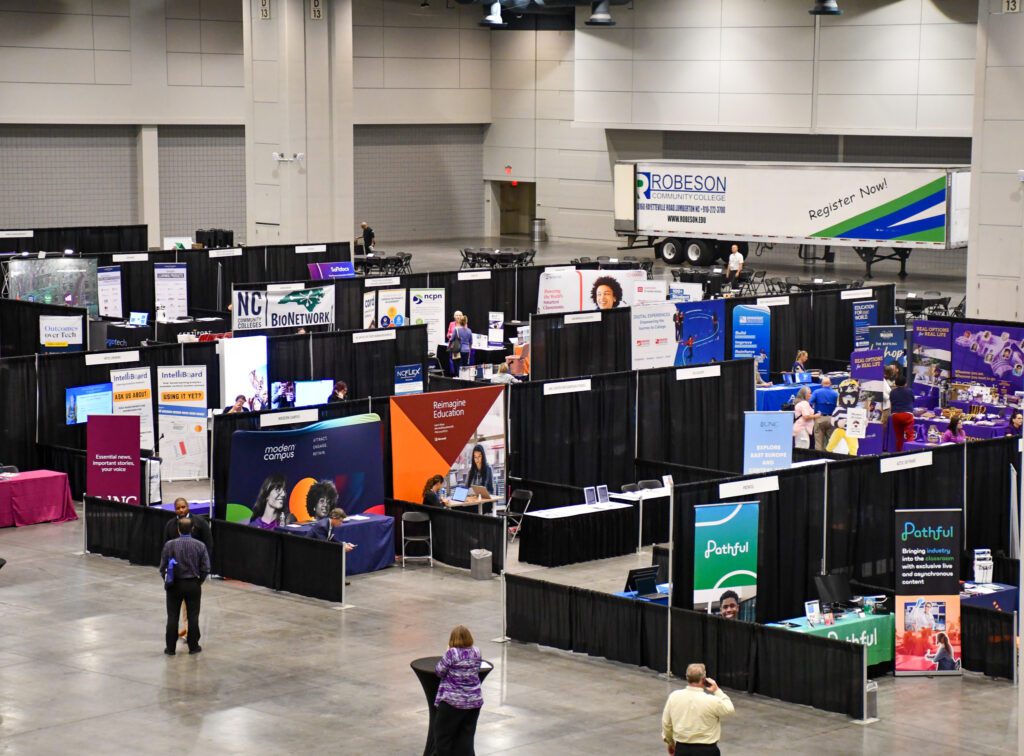
Over 100 exhibitors and sponsors showcased during the conference, including several culinary teams from North Carolina’s community colleges who prepared food for a Sunday evening reception.
Attendees had over 200 opportunities to engage in panel discussions or roundtables over the three days. Sessions ranged from collaborative partnerships to engaging adult learners and beyond.
Dr. Bill Daggett, executive director of the Successful Practices Network, spoke on the future of AI in the workplace and society. Daggett discussed how AI will increasingly impact the workplace, home, and society — causing a major shift in the skills, knowledge, and attributes students will need to be successful in the world beyond school.
myFutureNC, the North Carolina Department of Commerce, and the North Carolina Business Committee for Education convened a number of stakeholders, including 25 funders, during the conference to learn about the Surry-Yadkin Works model and its impact. Stakeholders also explored ways to expand the model to benefit more communities across North Carolina.
Panelists reminded attendees during sessions that in order for an innovative practice to work, you must first know who you are serving.
“Your community is unique,” said Kris Burris, College of The Albemarle’s vice president of student success and enrollment management. “You must tailor (the practice) to your community.”
The next NCCCS conference is slated for fall 2026.
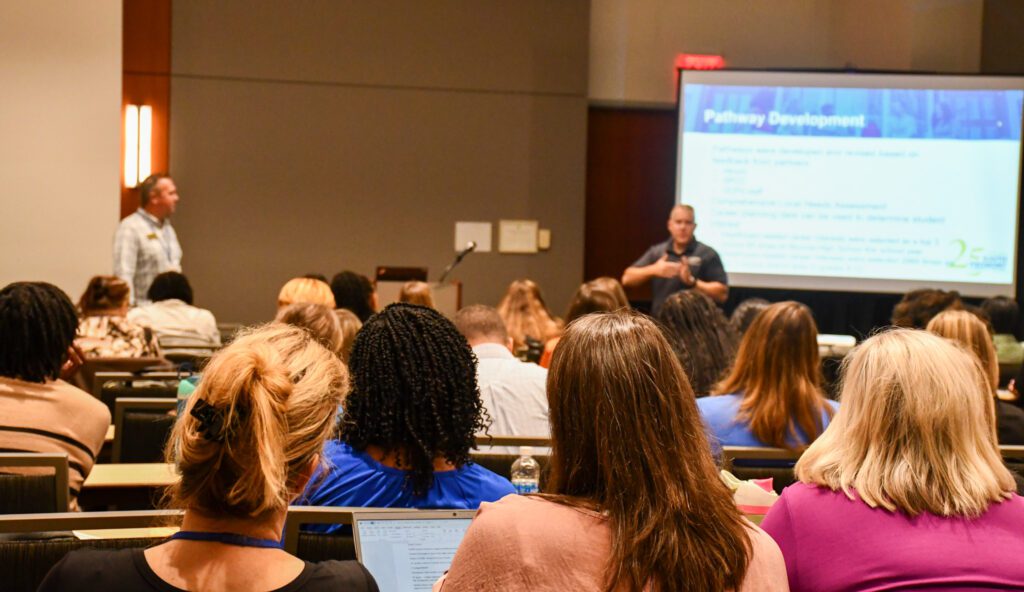
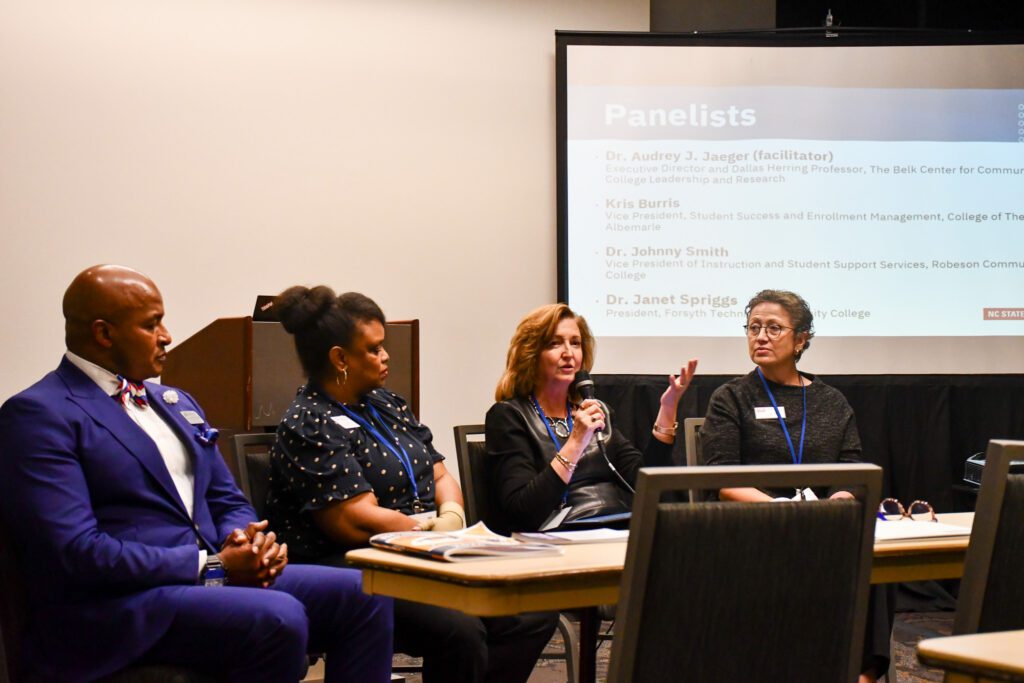
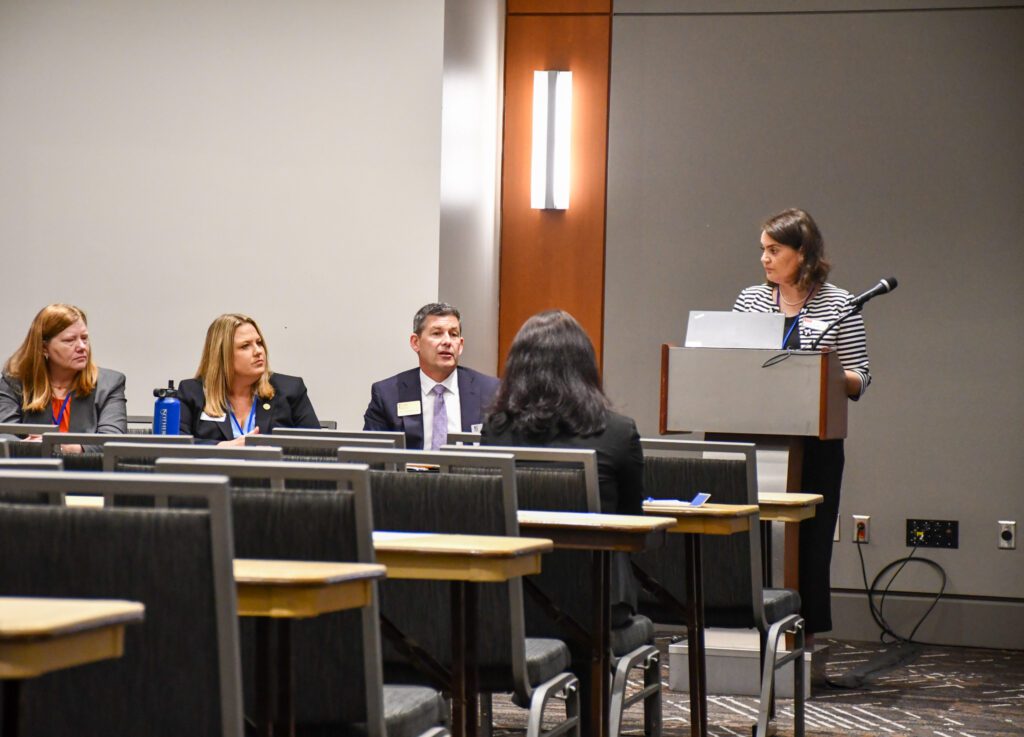
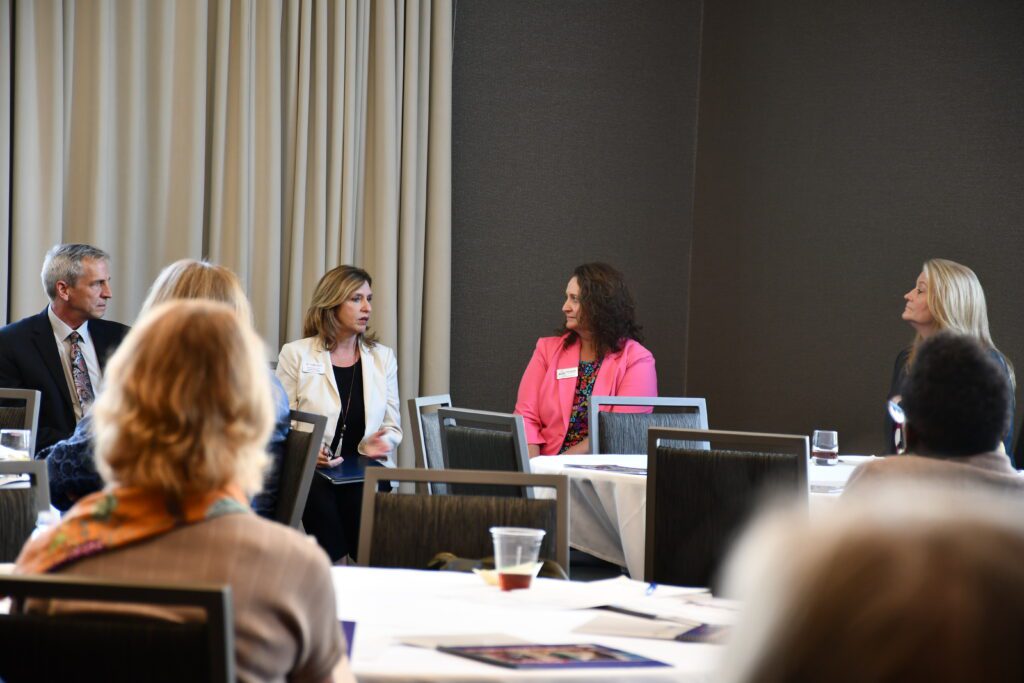
Editor’s note: This article was updated after publication.




